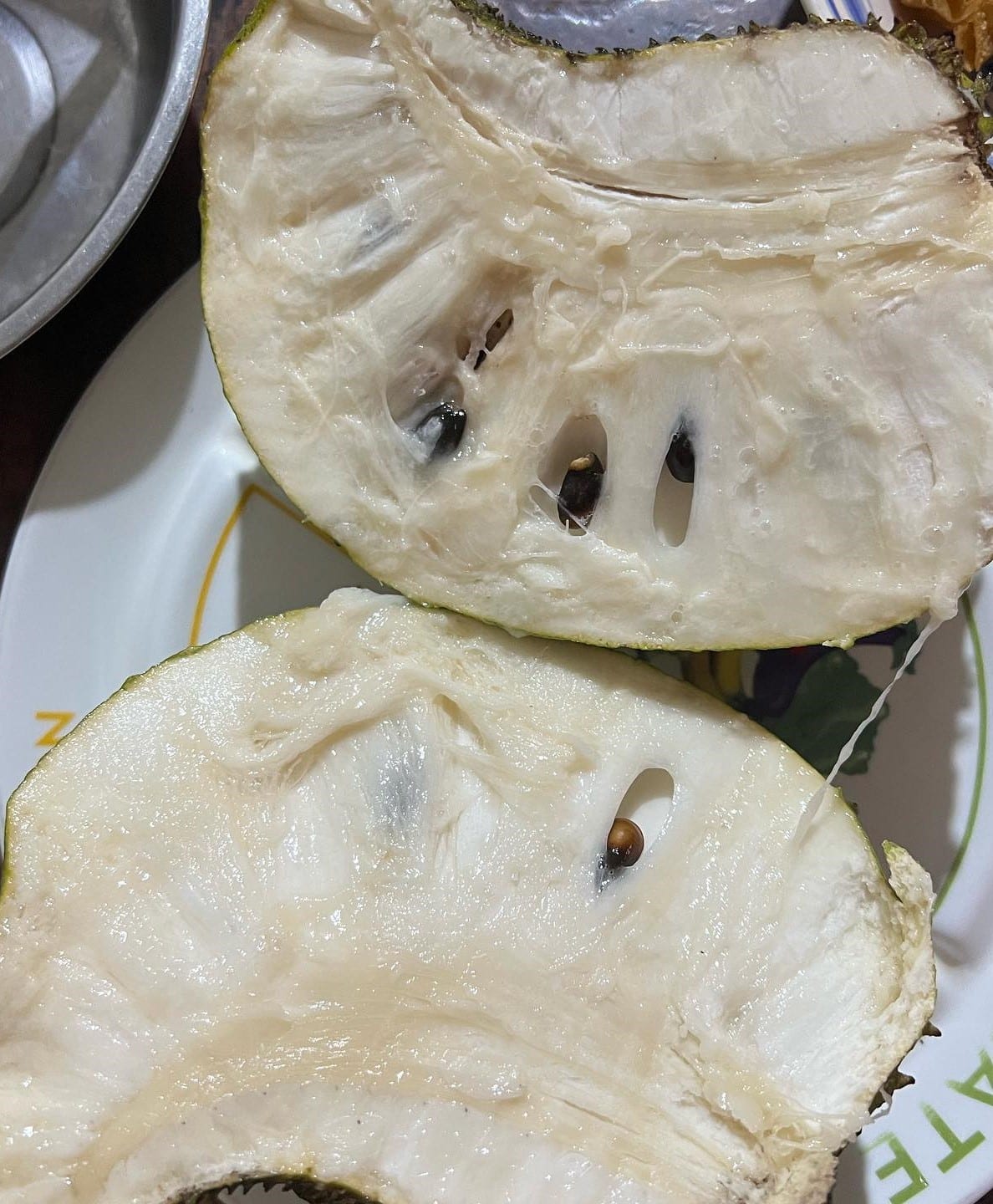Despite the rumors of Soursop being highly toxic and banned in the US, they are easily available online. So, it is okay if you also hold the same thinking.
Go through the article to clarify the confusion about Soursop and if you can enjoy its part as a delicacy.
Table of Contents Show
What Is Soursop Fruit?
One tropical plant readily unavailable in the US market is Soursop (Annona muricata), a native of the American and Caribbean tropics.

The fruit has creamy flesh that tastes like a mix of strawberry, apple, and citrus. And while referring, the Soursop usually indicates the fruit part.
Moreover, they are rich sources of nutrients, fibers, and vitamins, holding potential medicinal benefits.
Meanwhile, you can know this fruit by common names like Graviola, Guanabana, Brazilian pawpaw, Custard Apple, and Guyabano.
Why Is Soursop Banned? Is Soursop Illegal?
The cultivation of Soursop being banned in the US and the UK has its reason. The first is its toxicity.
Soursop seeds have toxins like acetogenins, responsible for the failure of kidneys and liver when consumed excessively.
Some side effects of Soursop are nausea, vomiting, low blood pressure, movement disorders, and Parkinson’s disease.
However, not all part of Soursop is toxic. People use fruit flesh in preparing juices, sorbet, and candy. Some even add it to ice cream and jellies for flavor.
Thus, avoid the seed of Soursop to prevent any hazards and look for a doctor to check if you have an allergy to Soursop.
Also, the claim that Soursop is illegal might not be valid. Some online markets like Amazon and Walmart are selling their nectar and juices.
What Are The Proven Benefits Of Soursop?
Traditionally, Soursop has received fame as a medicinal plant widely used to treat respiratory ailments, skin diseases, and tumors.
Also, fruits, resembling Jackfruit, are rich in Vitamin C, potassium, and fiber which can boost the immune system.
People believe leaves cure headaches, insomnia, and cystitis. Similarly, seeds can fight parasitic infection, but few approach it since it is poisonous.

The people of the sub-Saharan country like Uganda use all of its parts to cure malaria, diabetes, and stomachache.
However, the experiments to prove its benefits were all in-vitro and performed over a mouse which is yet to conclude in humans.
Meanwhile, the role of Soursop in Cancer treatment is debatable, as FDA disapproves of it because of no scientific evidence.
So, further research is still on the run to determine the benefits and risks of Soursop to humans.
From Editorial Team
Additional Tips!
Getting a hold of complete Soursop fruit might not be possible from any local markets. So better to opt for online sites to buy Soursop.
But remember that Soursop is quite expensive and may even cost $100 for a single box of 4 to 5 fruits. Also, consult a doctor for guidance on whether Sousop is safe to eat.


